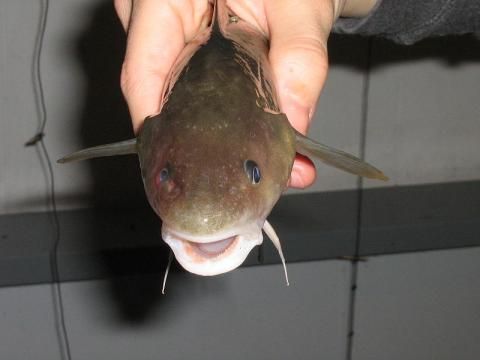
A recent study in the journal Science has shown that a little bottom-feeding Hudson River fish has evolved to resist one of humankind's most potent pollutants: toxic polychlorinated biphenyls, poisonous dioxins commonly known as PCBs.
Both the Times Herald-Record and the Daily Mail ran stories about the amazing evolving Atlantic tomcod in their Sunday editions yesterday.
Adam Bosch at the THR had a simple recap of what, exactly, the scientists at the Woods Hole Oceanographic Institution, New York University and the National Oceanographic and Atmospheric Administration did:
They mapped the tomcods' genes and discovered a startling change. Tomcod from the Hudson River were missing a little piece of their genetic code. And that, simply put, stopped the dioxins from poisoning them. The missing genetic code is still found in fish from other waters. [New York University geneticist Isaac] Wirgin said it was the first time any scientist had documented a genetic cause of toxin immunity. It was also proof that evolution was at work in the Hudson. Tomcod had evolved, and only the fittest survived.
Daily Mail reporter Jamie Larson pointed out that even if the Atlatnic tomcod has found a way to resist pollutants, the fish that feed on it -- as well as humans -- have not:
The findings of the study are intriguing to evolutionary biologists Wirgin says but they are not a reason to celebrate for those who care for the river’s ecology. While the tomcod are not impacted as much by the PCBs they store the chemical in high amounts in their livers and eggs. The little bottom feeders are low on the food chain, and are food for lots of larger fish that do not have the resistance, bringing PCBs back up to vulnerable fish and anything that eats those fish.
To hear the lead scientist Isaac Wirgin discuss his findings in a podcast on the Science website, click here.














